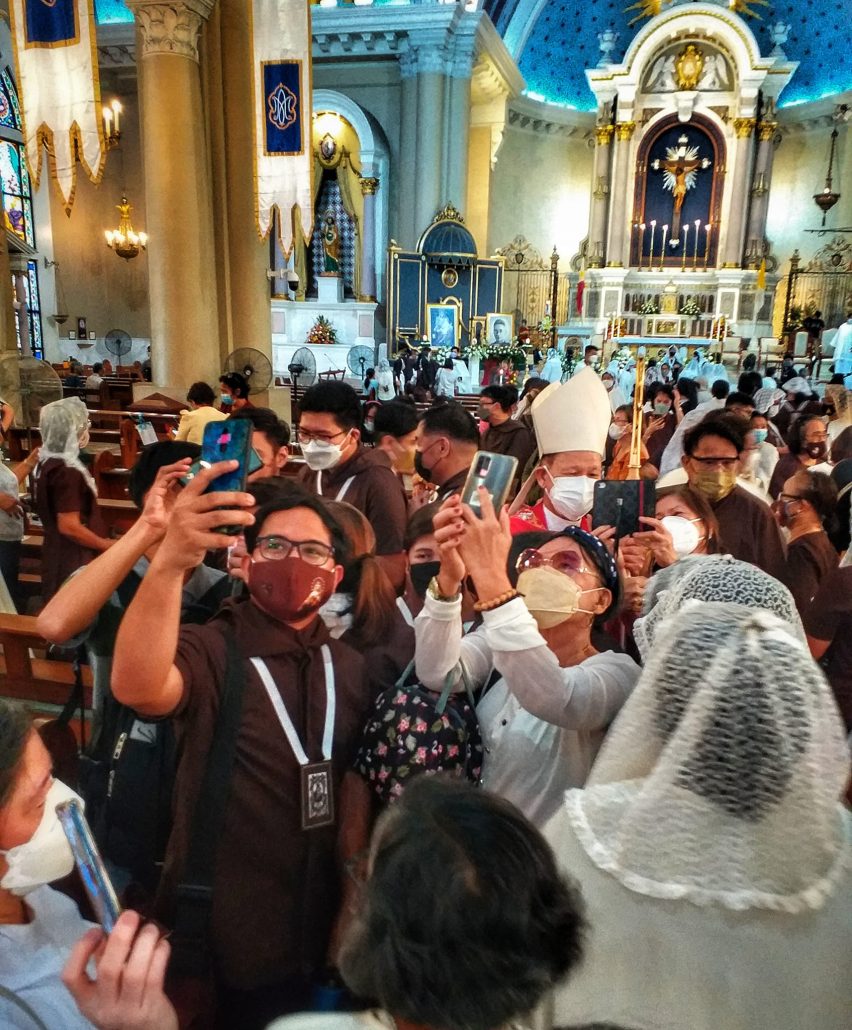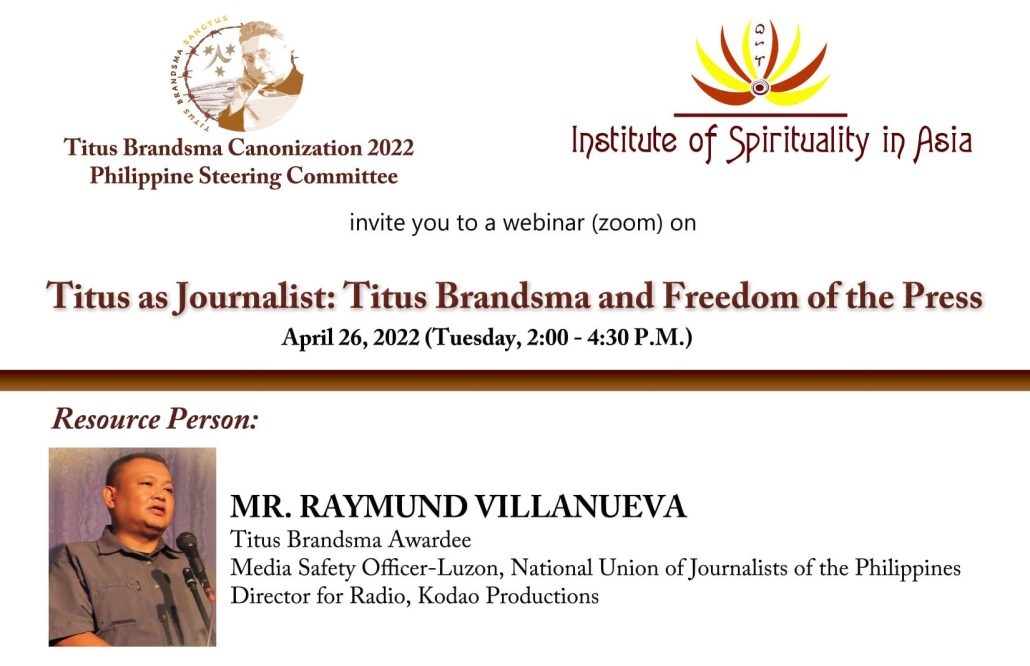Media groups urge Marcos Jr to ensure media freedom
Manila’s Cardinal Advincula: ‘When truth is at stake, remaining apathetic and being silent is a sin’
International and local media groups urged the incoming Ferdinand Marcos Jr. government to commit to protecting media freedom they said has since deteriorated after being restored upon the ouster of the first Marcos regime in 1986.
Reminding that the media was “restricted and regulated” during his father’s regime, seven media groups said media freedom has also suffered under the outgoing Rodrigo Duterte government with increased attacks on journalists and independent media.
“The president-elect of the Philippines as a result of the May 9 election must ensure the protection of media freedom in the country. Media freedom is important to fulfill the right to information for the public, which is one of the keys to democracy,” the seven groups said.
In a statement, the Alliance of Independent Journalists, Center for Independent Journalism, The Movement of Independent Media / Gerakan Media Merdeka, Freedom Film Network, National Union of Journalists of the Philippines (NUJP), Cambodian Journalists Alliance Association, and Association of Journalists of Timor Leste cited that the Philippines has declined on the World Press Freedom Index in the last five years.
“Using new metrics to measure press freedom in its 2022 index, Reporters Without Borders ranked the Philippines 147th, the third lowest in Southeast Asia,” the groups said.
They added that the guarantee of media freedom must be implemented by enacting press freedom laws, establishing independent media councils, decriminalizing defamation, ending censorship and bans on the media, and stopping lawsuits.
The groups also said the Philippine government must stop the practice of impunity by committing to uncover and prosecute the perpetrators of attacks against journalists and media, both physically and digitally. Perpetuating impunity will result in a prolonged cycle of violence.
Letter to President-elect Marcos
In a separate May 23 letter, Committee to Protect Journalists (CPJ) President Jodie Ginsberg requested President-elect Ferdinand Jr. to reverse Duterte’s “abusive acts and policies” targeting independent media and journalists and to restore the Philippines’ “once-proud standing as a regional bastion of press freedom.”
Ginsberg said that Marcos should undo Duterte’s long campaign of intimidation and harassment of the press and “give top priority to this urgent task.”
“The legitimacy of your administration should be based on independently reported facts that allow for the kind of true public accountability that is the hallmark of strong democracies. The people of the Philippines deserve no less,” Ginsberg wrote.
Ginsberg said the new Marcos administration should end the relentless persecution of journalist and Nobel Peace laureate Maria Ressa she described as “a global beacon of press freedom.”
“CPJ calls on your government to immediately drop all pending charges against Ressa, her colleagues, and the Rapplermedia group,” Ginsberg wrote.
She said the cases against Ressa and Rappler were trumped-up in attempts to shutter Rappler and carry potential prison penalties.
Ginsberg also mentioned Rappler reporter and NUJP director Lian Buan who complained of being shoved and blocked several times by the president-elect’s security detail and media relations officer while covering Ferdinand Jr.’s campaign events.
The CPJ said it also strongly calls on the incoming Philippine government to restore the operating franchise of ABS-CBN and to stop the Duterte regime’s red-tagging of journalists.
“Red-tagging is especially dangerous considering the Philippine military’s alleged role in extrajudicial killings and torture of accused communists,” Ginsberg wrote.
The CPJ also called on Marcos Jr. to drop the red tagging-related charges pending against journalist Frenchiemae Cumpio who has been languishing behind bars for over two years in an attempt to silence her reporting on the Philippine military’s operations against communist rebels and alleged associated human rights abuses.
“As the Philippines’ newly elected leader, you have the mandate to reassert your country’s damaged democratic credentials by forthrightly promoting and protecting press freedom. We urge you to seize this important moment and state clearly from the outset that journalists will be free to report without fear of reprisal, intimidation, or imprisonment during your tenure,” Ginsberg said.
‘Combat lies with truth’
Meanwhile, Manila Archbishop Jose Cardinal Advincula warned of a “crisis of truth” and urged the Catholic faithful to combat lies.

At the thanksgiving Mass for the canonization of Dutch Carmelite priest Titus Brandsma last Saturday, Advincula said the media should only be used to promote truth.
“When we seem to be experiencing a crisis of truth especially on social media, St. Titus inspires us to use social media as a pulpit from which we must proclaim, and if need be, defend the truth,” Advincula said.
Hailed as the Catholic Church’s martyr for press freedom, St.Titus Brandsma was arrested and killed by German occupiers for refusing to publish Nazi propaganda during World War II.
Advincula led the thanksgiving at the Immaculate Conception Cathedral in Cubao with the Carmelite community in the Philippines after Brandsma’s elevation to Catholic Church sainthood by Pope Francis last May 15 in Rome.
“This makes St. Titus very relevant to our times. If there are forces that use social media to deceive and spread lies, let us come combat them with flooding it with the truth of God’s word,” the Cardinal said in his homily.
“St. Titus reminds that when truth is at stake, remaining apathetic and being silent is a sin,” he added. # (Raymund B. Villanueva)

